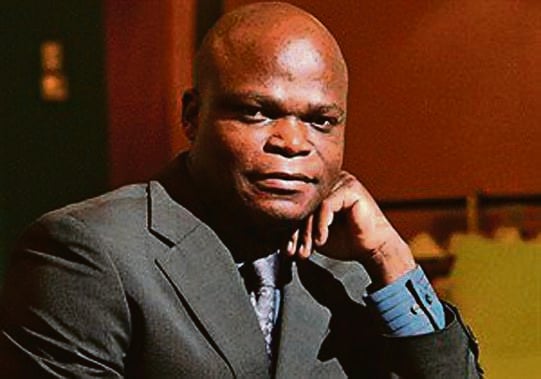
Technology the way to go to become one of the big five industrialised countries
South Africa, known as the home of the Big Five in the tourism industry, could easily be one of the big five industrialised countries in the world if resources were directed towards supporting innovations and inventors.
This is the view of inventor extraordinaire, professor Mulalo Doyoyo, who has a string of inventions behind his name, including the cement-less concrete, Cenocell; ecofriendly paint Amoriguard; flushing solar-powered toilets that work as miniature waste treatment plants; Ecocast brick-making machines that use less water and energy; and a hydrogen motorbike.
“We’re capable of doing it and we can work like the Japanese, Germans and Americans and have our products labelled ‘Made in South Africa’ exported all over the world. Those people do not talk about theories, they work. Industrialisation is about action,” Doyoyo said.
Since the country has the Big Five – referring to lions, elephants, leopards, buffalo and rhino that are prime tourist attractions – he asked: “Why can’t we become one of the top five industrialised countries in the world?”
“At this point, industrialisation in South Africa is at zero,” Doyoyo said.
He put forward his road map for South Africa to carve a niche among the industrialised countries in an incisive and well-researched document, titled Resource-Driven Technology Concept Centre (Retecza). In 2007, using the document as a reference, he and a group of Tshwane University of Technology (TUT) engineering students at the Soshanguve campus designed the hydrogen motorbike, known as the Ahifambeni.
Read : Long live the tech evolution
If implemented, Doyoyo said, Reteczas would encourage collaboration between industries and academic institutions to develop concepts and create a vibrant culture of cutting-edge research and innovation.
They would be centres at which inventors, industries and academic institutions would work together to research innovations, test them and produce prototypes and final products that could be commercialised.
The long-term rewards of Reteczas would be the production of globally marketable and high-quality products that would break the cycle of poverty by creating jobs as new factories would be established and existing ones strengthened.
“Reteczas will inspire a boom of industrialisation in South Africa [and] will enable profitable, privately funded public works for the unskilled and unemployed poor. The centres’ advanced training on technology concept development at the academia-industry interface will reverse the brain drain by attracting, producing and retaining large numbers of top-level students and highly skilled personnel.”
Doyoyo said innovators had to be identified at school level and incubated at regional Reteczas established throughout the country.
He said many unemployed engineers resorted to being vegetable vendors and had started car washes because they had lost hope.
“This is the critical workforce that the country can support and use through a foundation attached to Retecza,” he said.
TECHNOLOGY AS A POVERTY ALLEVIATOR
Doyoyo said technological development could be used to alleviate poverty.
He decried the fact that developing nations were forced to direct most of their budgets towards poverty relief, health, water and waste management, the power crisis, ageing infrastructure and climate-induced disasters.
“In a world that favours the industrialised,” Doyoyo said, “technology represents the only way out for the poor. Instead of being a trusted supplier of resources to wealthy nations, South Africa should transform itself into a self-sufficient technology giant. This necessitates a fundamental change in culture because the drivers of innovation in any nation are human beings, including naturally gifted inventors, well-educated and highly skilled scientists and engineers. Innovation thrives only when innovators are empowered.”
HYDROGEN MOTORBIKE, STAINLESS STEEL CAR
Although Doyoyo and the TUT students produced the hydrogen motorbike, he said it did not get the support to be manufactured in factories and sold commercially. “The motorbike idea did not reach its potential.”
He said the reason could be because he was out of the country at the time. He returned to South Africa from the US in 2015.
Doyoyo also invented the Runza, a stainless steel vehicle suitable for South Africa’s rural terrain.
But it did not get financial support from funding agencies despite interest from Volvo, BMW and Ferrari.
He is one of the lead investigators for the New Vehicles Initiative – a global automotive forum for future vehicles.
Doyoyo said the Runza would be built using material similar to aluminum, which would be made from chrome which is abundant in the country.
South Africa holds 72% of global chromite resources, including more than 41% of the world’s reserves.
“When we get this right, we can produce and export cars to the rest of the world instead of importing.”
He said that, if implemented, Reteczas would not only improve the quality of life for South Africans, but would also propel the country to becoming the main technology exporter to Africa, Latin America, the Caribbean.
“I know South Africa could be on the path to be one of the big five industrialised countries in the world,” Doyoyo said.
 |
| ||||||||||||
| |||||||||||||




 Publications
Publications
 Partners
Partners








